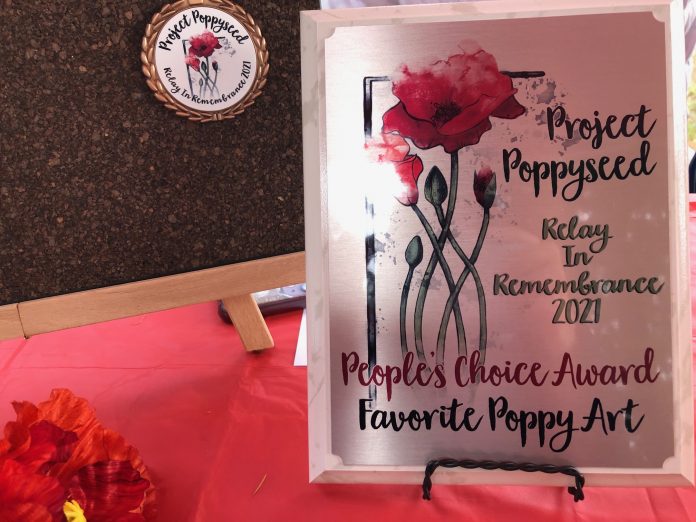
In his famous 1943 novella “The Little Prince,” Antoine de Saint-Exupéry wrote, “It is such a mysterious place, the land of tears.” Project Poppyseed, a new nonprofit supported by Saint Martin’s University staff and students, helps families demystify the land of tears, grief, confusion and anger that occurs after suffering a perinatal loss, which is the death of a baby shortly after birth.
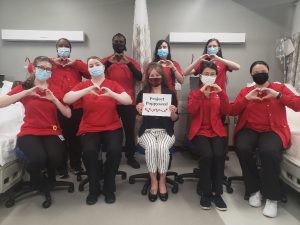
“It disrupts our beliefs of how modern medicine should work,” says Shandeigh “Nikki” Berry, assistant professor in the SMU Department of Nursing, in describing perinatal loss. “It’s easier to ignore, but then we isolate the parents who are going through this experience – those who need the support of their family, the community, and their co-workers.”
Project Poppyseed reports that yearly, one in four pregnancies end in loss. In the United States, 24,000 babies are stillborn and between 750,000 and 1 million pregnancies end in miscarriage annually. Project Poppyseed breaks the silence for those undergoing such a loss, raising awareness and providing resources for families and health care providers.
Berry is the nonprofit’s president and board chair. Berry’s sister’s experience led to Berry’s research on perinatal loss several years ago at Washington State University, and to Berry’s formation of the nonprofit this year. In 2016 Berry’s sister and her husband learned the baby girl they were expecting, whom they called “Little Poppyseed,” had anencephaly, a life-limiting congenital anomaly in which the brain does not fully develop. Babies with anencephaly are not able to survive long after birth, even if they survive pregnancy and labor. Her sister asked for Berry’s help, including to arrange organ donation. At the time, Berry worked as an operating room nurse. She discovered there were limited perinatal loss resources. Berry went on to get her doctorate degree, focusing her research on perinatal loss, grief and bereavement.
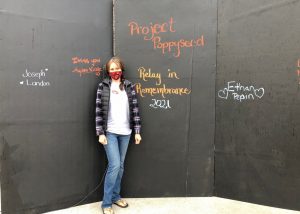
“From the start, one of the more heart-breaking things I learned was how shrouded in silence perinatal loss is,” Berry wrote about the parents she interviewed as part of her research. She more recently describes that one man she interviewed told Berry that she was the first person in 12 years to ask him about what he went through with the perinatal loss of a daughter. “It’s been eye-opening to see since 2016 the power of letting people tell their story,” Berry says. “There is ambiguity of loss. They ask, ‘Am I a parent if I don’t have a child in my arms?’” A perinatal loss can cause a lifetime of grief.
Nationally, October is “Pregnancy and Infant Loss Awareness Month,” designated by President Ronald Reagan in 1988. Project Poppyseed’s website increases that awareness by providing perinatal loss research, education and resources including information on support groups and events.
Project Poppyseed has the support of the SMU Student Nurse Association and other students and staff in the university’s nursing and social work programs. The association raised money for Forever Footprint’s Teddy Bear Fundraiser, providing teddy bears to children who were anticipating the arrival of a new sibling. “Lots of parents say telling the kids (siblings) is really hard, and hard to explain,” Berry says. The teddy bear is a grief support for those children also undergoing the loss.
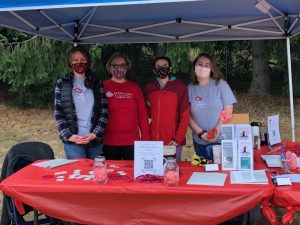
The student association and others assisted Project Poppyseed’s first “Relay in Remembrance” at the SMU track in September. Berry anticipates the event will be an annual walk/run. This year the relay included information booths, speakers and a large chalkboard for recording the names of those lost too soon.
The recent relay and an October memorial at the SMU Worthington Center are examples of the types of events where Berry says parents can talk and grieve. “Disenfranchising them prolongs their grief,” she says. “‘I Remember’ is our slogan,” she explains. “One dad I spoke with said, ‘that’s all you need to say.’”
Berry’s research is continuing. Lori Sirs, an assistant professor in the SMU Social Work Program, is working with Berry on a new study exploring ways to help men grieve following perinatal loss. Workshops will be starting in January 2022. One of the treatment techniques under study is poi spinning, an ancient practice of indigenous people such as the Māori of New Zealand. Poi are tethered weights held in the hand and spun around the body as a physical mediation method to reduce stress and process grief.
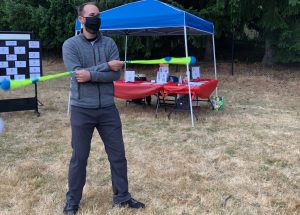
A second area of new research is a national longitudinal study following parents expecting a child who has been diagnosed with a condition that means the child will not live long after birth. The study will examine transitioning from an expected healthy pregnancy to what is determined to be a non-healthy pregnancy, tracking the grief and other effects of an adverse outcome.
To learn more about the project or to make a donation, see the website or social media sites linked there, or contact Berry at projectpoppyseed@yahoo.com.















































